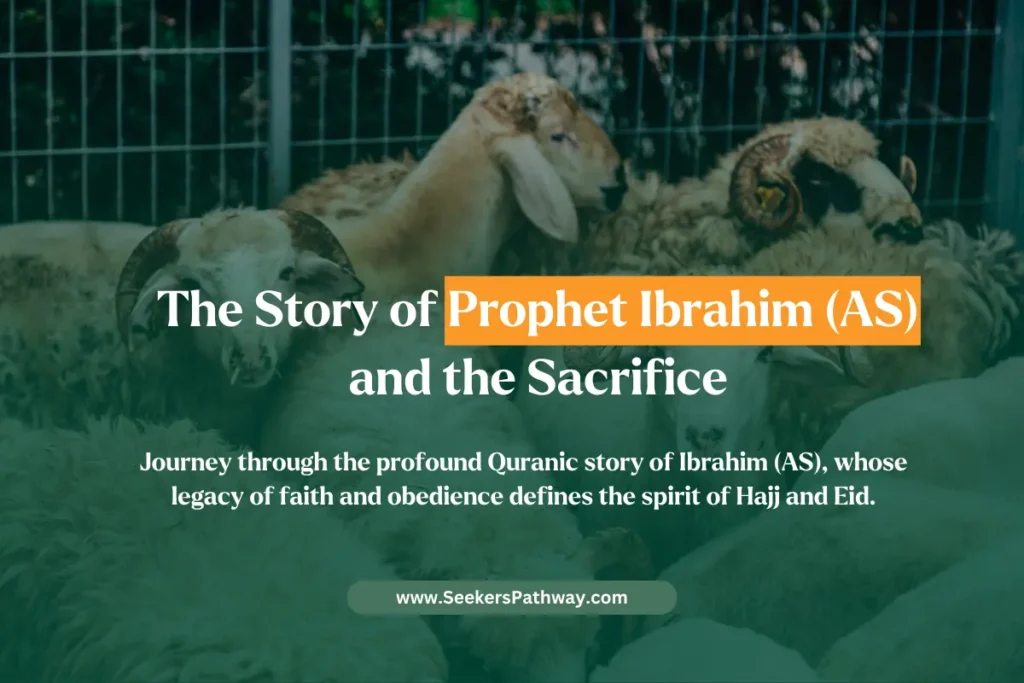At its core, the month of Dhul Hijjah is marked by a timeless act of worship, sacrifice. It’s not some cultural or habitual ritual, rather, it’s a moment of sheer surrender. Prophet Ibrahim (AS) and his son, Ismail (AS), were unwavering in their faith in Allah. This supreme event is celebrated every year on Eid al-Adha and truly constitutes the essence of the Islamic faith: submission, devotion, and submission.
The Dream of Sacrifice: A Test Beyond Comprehension
Ibrahim (AS) was sent a revelation in the form of a dream, to the effect that he must sacrifice his darling young son, Ismail (AS). Instead of disputing that, he asked his son, and the answer of Ismail (AS) was one of pure faith.
“Oh, my father, do as you are commanded. You will find me, if Allah wills, among the patient.”
(Surah As-Saffat 37:102)
This powerful moment showed:
- A father’s obedience.
- A son’s trust.
- And the ultimate submission to Allah’s will.
The Divine Substitution
As Ibrahim (AS) prepared to do it, Allah intervened:
“We called out to him, ‘O Ibrahim, you have fulfilled the vision!’ Indeed, this was a clear trial.”
(Surah As-Saffat 37:104–106)
Allah replaced Ismail (AS) with a ram, and instead it became a celebration of faith and mercy.

Why Muslims Sacrifice Today
The Qurbani act during Eid al-Adha is not simply sacrificing an animal; it is:
- Reviving the spirit of obedience.
- Honoring Ibrahim and Ismail’s submission.
- Reflecting on what we’re willing to sacrifice for Allah.
“Their meat will not reach Allah, nor will their blood, but what reaches Him is your piety.”
(Surah Al-Hajj 22:37)
The Deeper Lessons of Sacrifice
- Letting Go of Attachments: Ibrahim (AS) trial shows us to lay our hands off from what we love, even if we love the most, for Allah.
- Tawakkul (Trust in Allah): Ismail (AS) is an example to show us that even those in their youth can have strong conviction and patience.
- Mercy Follows Obedience: Allah didn’t desire pain; He wanted a proof of love and submission.
Conclusion
The story of Ibrahim (AS) isn’t just history, rather a living lesson that motivates every Muslim year after year. As we sacrifice, let’s reflect, and not only on the action itself, but on the love, the trust, and submission to His will that it symbolises.
“Indeed, this was a clear trial, and we ransomed him with a great sacrifice.”
(Surah As-Saffat 37:106–107)










